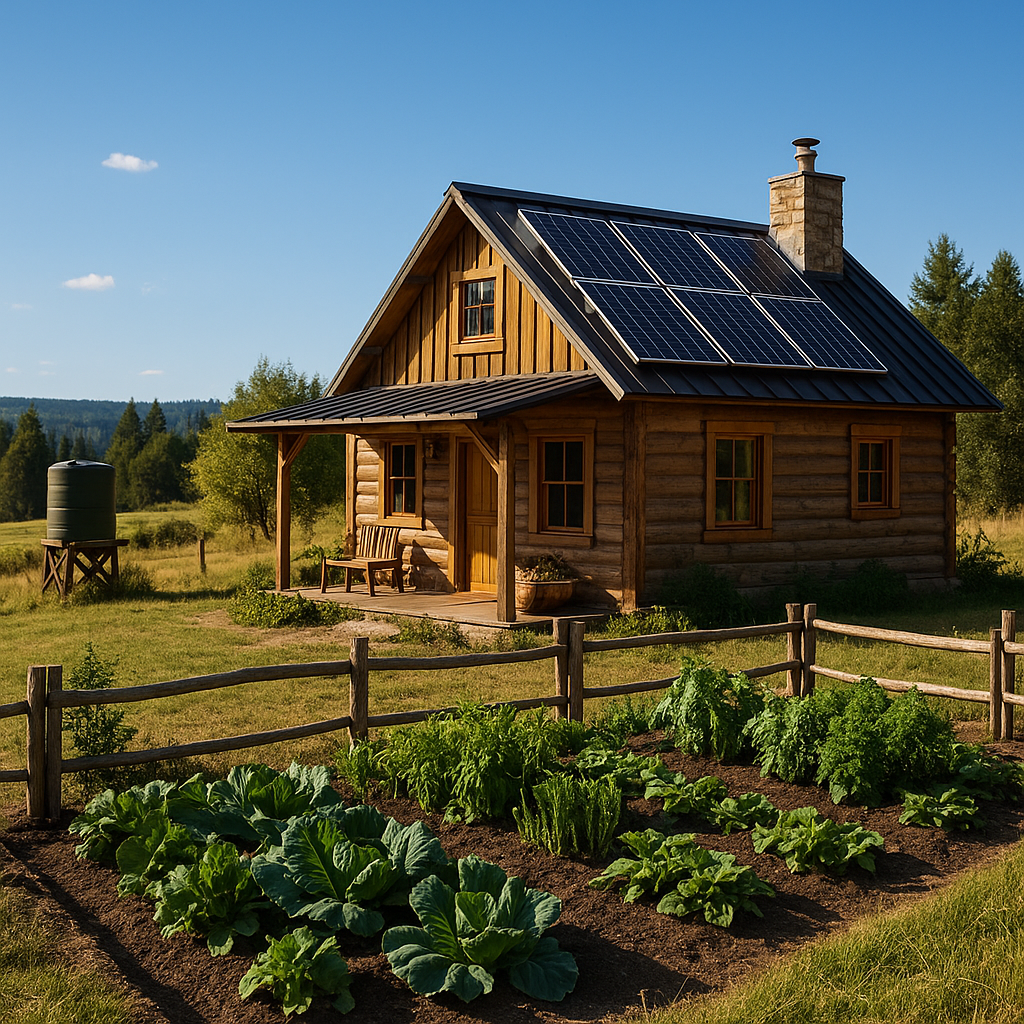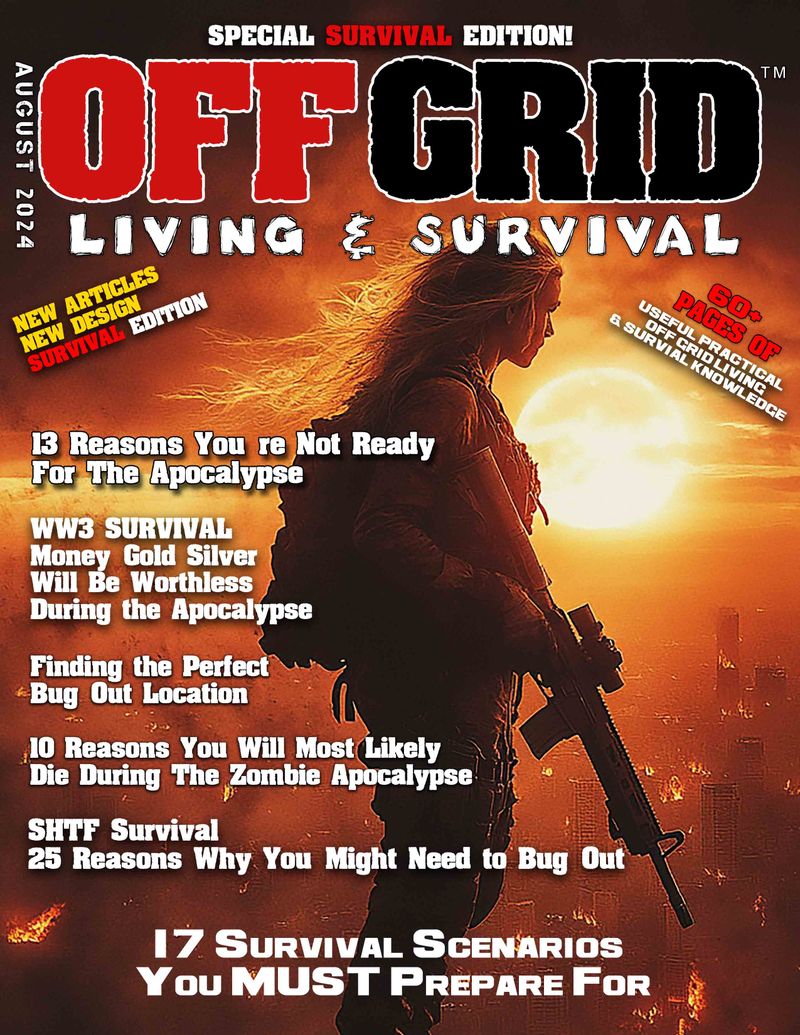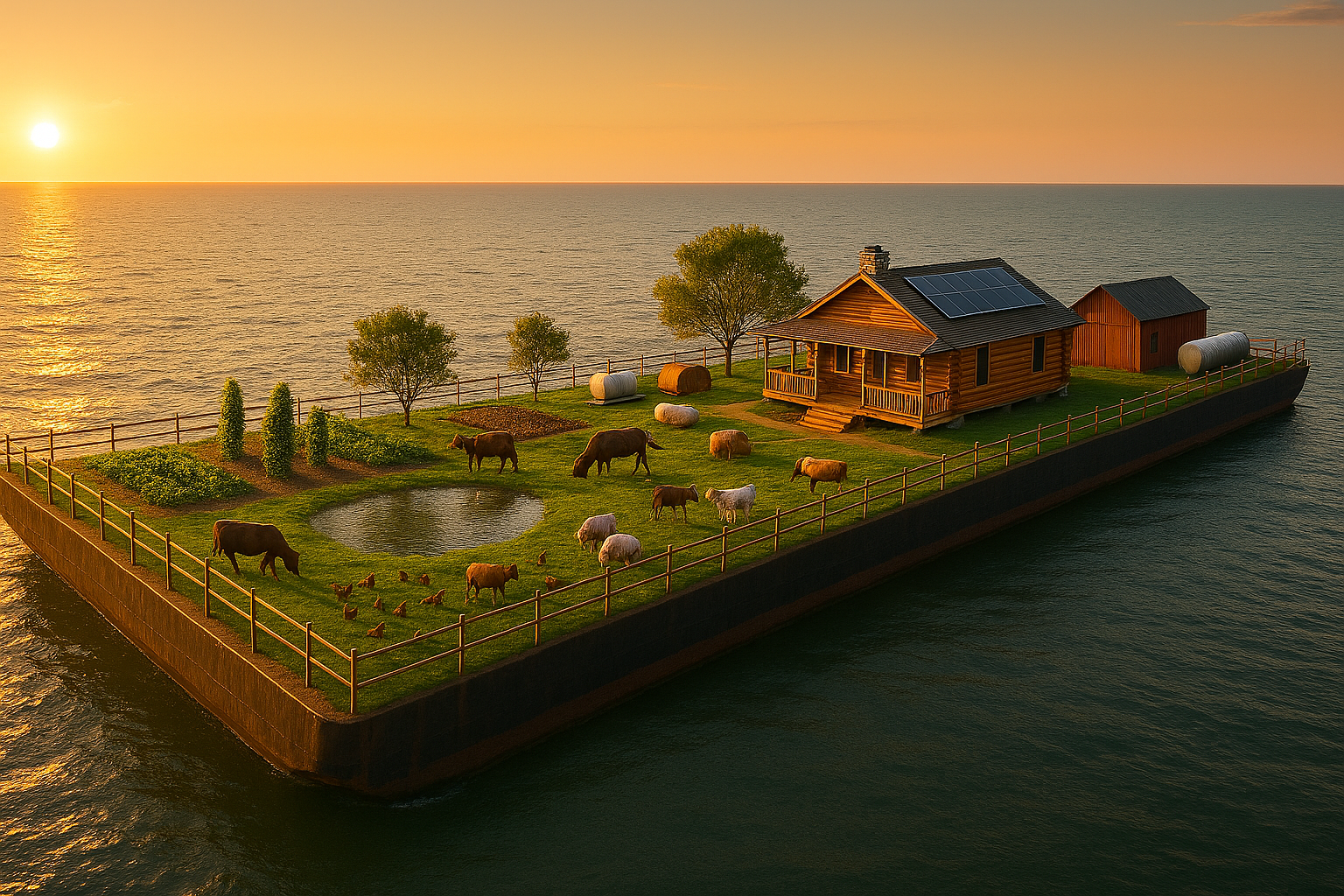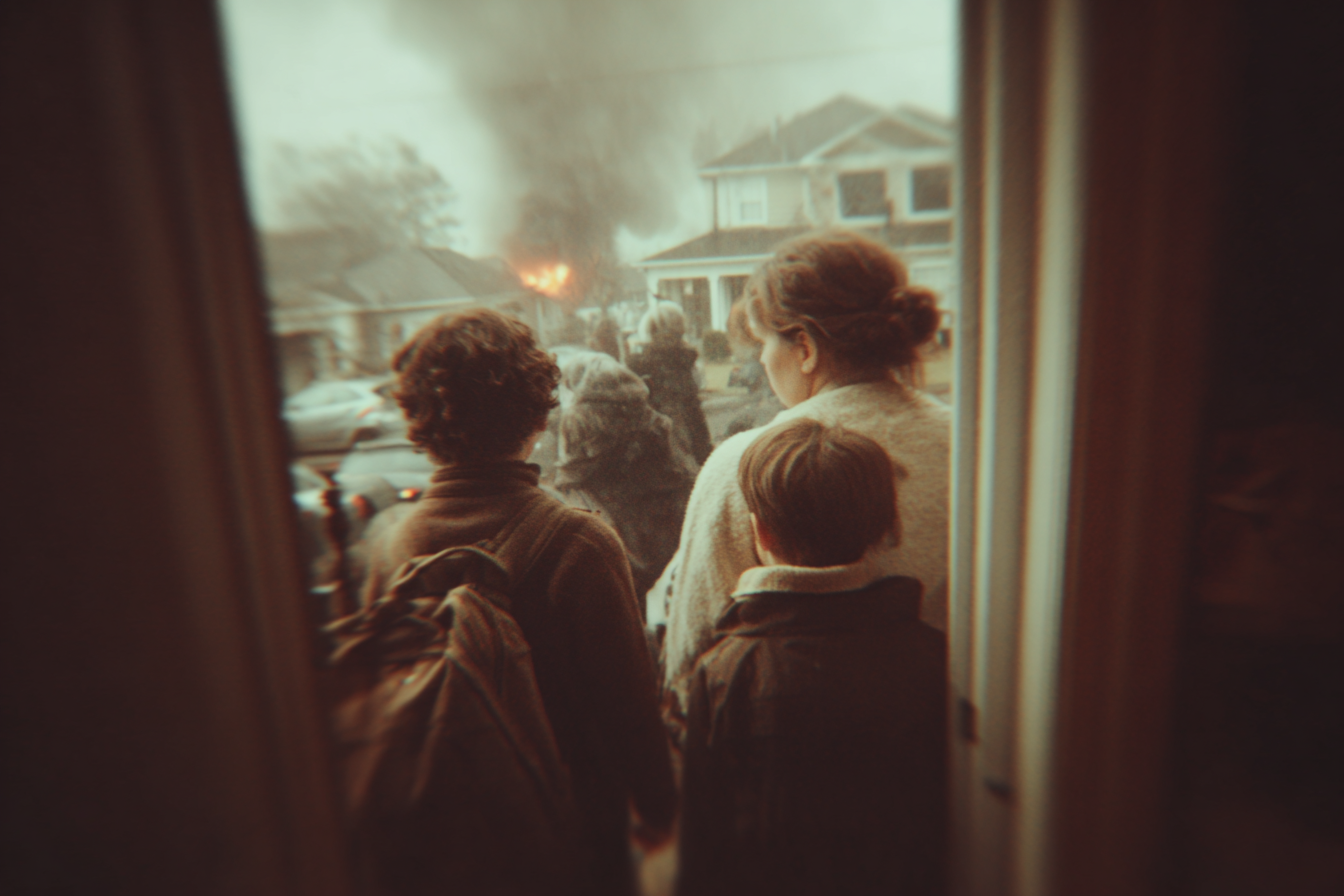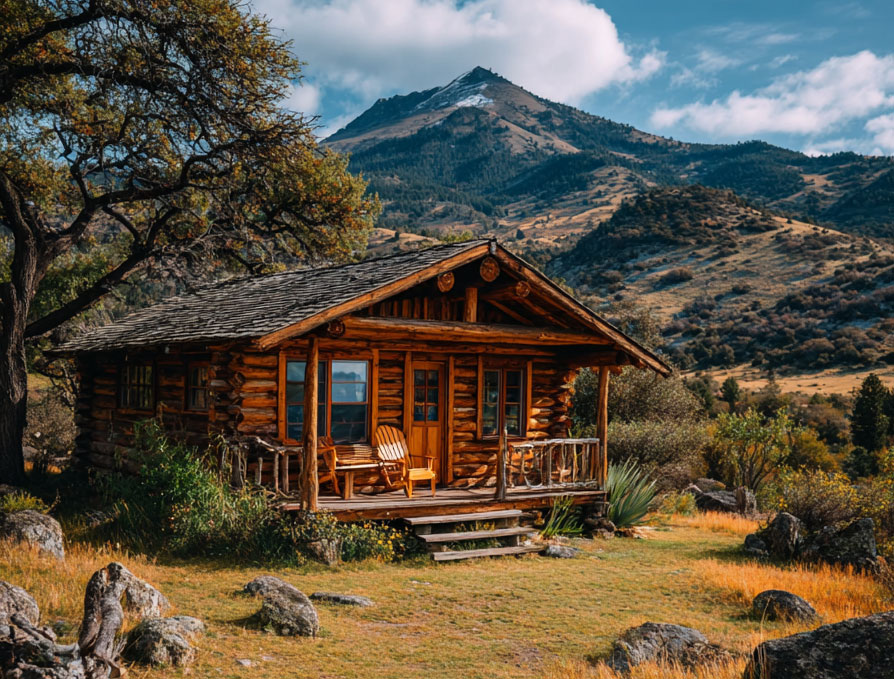The Top 7 Rookie Mistakes That Will Wreck Your Off-Grid Plans Before You Even Begin
Read this BEFORE you waste money, time, or your sanity.
Let’s get real for a second:
Off-grid living isn’t a Pinterest fantasy. It’s not about posing in flannel shirts next to a solar panel while sipping herbal tea from a reclaimed mason jar. It’s hard work, it’s real work—and if you don’t take it seriously, it will chew you up and spit you out.
So before you blow your savings on a piece of dirt and a truckload of pipe dreams, let me save you the pain by calling out some of the most common—and completely avoidable—newbie mistakes people make when they try to go off grid.
1. Falling for the “Perfect Land” Illusion
Just because land is cheap doesn’t mean it’s livable. No water, no access, legal issues, zero infrastructure—it’s cheap for a reason. Don’t get seduced by price tags. Do your research like your future depends on it. Because it does.
2. Thinking Solar = Unlimited Power
It doesn’t. It means you’re the power company now. Panels need maintenance, batteries need care, and cloudy days aren’t just annoying—they’re your new utility outage. Have a backup plan.
3. Assuming DIY = Cheap
DIY can save money if you know what you’re doing. Otherwise, you’ll waste time and materials, then pay double to fix your mistakes. Invest in knowledge first, tools second.
4. Ignoring Local Laws and Zoning
Just because you’re “off-grid” doesn’t mean you’re off the hook legally. Permits, codes, land use restrictions—they don’t disappear because you’ve got a composting toilet and a dream.
5. Bringing Suburban Expectations Into a Wild World
The grid spoiled you. Running water, hot showers, air conditioning, internet… all of that requires infrastructure. You have to build what you used to take for granted. Don’t forget that.
6. Underestimating the Mental Shift
This isn’t just a lifestyle change. It’s a full-blown mindset overhaul. You can’t fake self-reliance. You will be tested—by weather, wildlife, failure, and fatigue. If you’re not mentally ready, it’ll break you.
7. Planning With Hope Instead of Reality
Hope is not a strategy. “Winging it” off grid is a great way to starve, freeze, or get buried in debt. Planning is survival. Be honest about your budget, your skills, and your limits. Going off grid isn’t about escaping the world—it’s about building a better one, on your terms. But if you go in blind, thinking it’s all sunsets and cabin vibes, you’re going to get a brutal reality check.
So don’t fall for the hype. Learn. Prepare. Then go build it right.
***
This is why I built the largest off grid group in the world and launched the Off Grid Living & Survival™ magazine 10 years ago, to help folks learn how to go off grid with no bullsh*t expectations, no hype, just pure off grid knowledge and information that will help you go off grid and achieve your off grid dreams. This isn’t about some Instagram fantasy lifestyle, this is reality and living off grid is as real as a gets! You are the king of your off grid castle, your homestead is your palace and you must have everything you and your family need to build the dream or it might become a nightmare. Do your due diligence. Don’t mess around or skip doing your research. Know what you’re doing before you do it, and don’t jump into anything just because you love a property. You get one chance at it, don’t mess it up. I don’t say this to discourage you. I say it to make you aware that it’s not easy, and you should prepare for years of hard work to build your off grid dream.
Like this article? Subscribe to Off Grid Living & Survival magazine for more.
***
How to Do Off-Grid Right (After You’ve Seen What Can Go Wrong)
You already know the rookie mistakes. Here’s what to do instead—practical, real-world advice that actually holds up.
1. Buy Land That Works, Not Just Land That’s Cheap
Look for land with legal access, a reliable water source, usable soil, and a buildable layout. Doesn’t have to be perfect—it just has to meet your needs. Cheap land without those basics ends up costing you more in the long run. The smart move is balancing price with practicality.
2. Own Your Power System, Don’t Just Plug It In
You’re the grid now. Know your system: how much power you generate, how much you use, and what to do when the weather doesn’t cooperate. Set it up right, maintain it, and have a generator or alternative source on hand. Solar works—but only when you treat it like your own utility company.
3. Use DIY Strategically, Not Blindly
DIY saves money if you know what you’re doing. Start small. Watch, read, learn, practice. Get the right tools and build up your skillset before tackling major projects. Hire out what’s beyond your level. The goal is results, not bragging rights.
4. Learn the Local Rules—Then Work Around Them
Zoning, building codes, water rights, septic permits—they still apply off-grid. Learn them. Plan around them. Don’t get stuck mid-build because you skipped the paperwork. It’s easier to build once the right way than to redo it under a stop-work order.
5. Adapt to the Environment You’re In, Not the One You Left
This isn’t suburbia. You can still have hot water, internet, and comfort—but you have to build it. Prioritize needs first: water, shelter, heat, power. Then layer in conveniences. You’ll appreciate them more when you’ve earned them.
6. Develop the Mindset Before You Commit
Off-grid living requires mental toughness, not just physical skills. Things will go wrong. Weather, animals, equipment failure—it’s all part of it. If you can keep your head and solve problems without panicking, you’re ready. If not, get there before you jump in.
7. Plan Like You’re on Your Own—Because You Are
Make real plans: budget, supply chains, timelines, backup systems. Assume delays. Assume surprises. The more realistic your plan, the fewer setbacks you’ll hit. Hope isn’t a plan. Preparation is.
Bottom Line:
Off-grid living isn’t complicated—it’s just work.
Make smart decisions. Stay honest about your skills. Don’t cut corners. Build what you need. Maintain it. Adjust when things break. Repeat.
That’s how people succeed off-grid.

